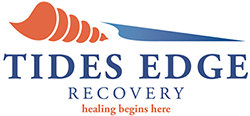Drug addiction affects many factions of the world; it harms the individual, destroys families, threatens communities, and makes its mark on society. Children of drug-addicted parents are some of the ones who suffer the most from this harmful epidemic. Their fragile emotions and developing brain make the stress of living with drug-addicted parents extremely difficult. In fact, the effects on children could be detrimental. Let’s take a look at how this may affect families.
If you or your parents are suffering from drug addiction, it may be time to seek help. The first step in recovery is detox. In order to detox, you may need to seek help from a professional drug detox center’s programs, such as the ones offered by a Jacksonville, FL drug rehab.
Living with Drug-Addicted Parents
People who have a substance use disorder and have children find it difficult to balance both. Often, drug addiction will take over and interfere with the parenting that goes on. Of course, there are some exceptions, and some parents may be able to manage to deal with both. However, the majority of people will likely find it very hard to cope.
For starters, drug addiction is a powerful disease that can easily take over someone’s life. As a result, people who are struggling with this problem may neglect their children or put them in dangerous situations as they seek to get high. This makes it extremely difficult for parents to focus on their children and provide them with the care that they need.
Furthermore, drug addiction often causes financial difficulties for families. Parents who are struggling with this illness may not be able to work or maintain a stable income, which can have a huge impact on the family’s well-being. Not only is it difficult for these parents to support their children financially, but it can also be difficult to put food on the table or pay for other necessities.
When there are drug-addicted parents, the child will usually face some type of neglect or even abuse. Why does this occur? Otherwise, loving parents don’t have control of their actions when they are under the influence of drugs. Therefore, they may act in ways they normally wouldn’t act. For example, some drugs can make people flustered, anxious, or overactive, which can be expressed to the child.
Potential Signs of Drug-Addicted Parents
In addition, the parent may stay out very late getting or doing drugs, or they may leave at different hours of the day and night to obtain them. Because drugs cause people to be preoccupied with the “high,” children may not get the attention they need. Therefore, children may struggle with school work, emotional regulation, bonding, and more. Drug addicted parents may make it hard for the child to have friends over because he or she is worried about what the parents may do. This can lead to social isolation.
Finally, because the drugs use so much of the money, the child may lack some of the necessities of life. Maybe the child doesn’t go hungry, but he or she doesn’t have nice clothes like other kids. This can lead to low self-esteem.
Despite all of these challenges, there are ways that parents with drug addiction can get help. For example, they may seek professional counseling to address their substance use disorder and learn more about effective coping strategies.
Find Hope And Healing At Tides Edge
At Tides Edge Detox, we help families who are struggling with drug addiction. Our mission is to lift people out of their misery; we don’t judge your situation. Experienced and compassionate therapists will give you and your drug-addicted parents the tools for recovery. Through our detox center, you can overcome drug addiction and have a happy family life. Some of the different addictions we treat include:
- Alcohol addiction treatment program
- Cocaine addiction treatment program
- Heroin addiction treatment program
- Opiates addiction treatment program
Don’t let feelings of hopelessness engulf you. If you are drug-addicted parents, you can overcome these issues by attending a quality detox program at Tides Edge Detox. Contact us at 866.723.3127, and we’ll walk with you along the road to recovery.









